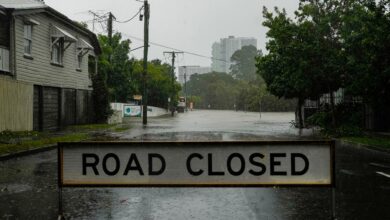Nursing researcher heads to Harvard
Nations across the globe are grappling with language testing requirements for foreign workers and an Australian researcher is at the forefront of this growing research field. By Linda Belardi.
A University of Adelaide researcher studying the registration process for overseas trained nurses in Australia will meet with Harvard academics later this month to discuss the issue which is concerning nations globally.
PhD student Tiffany Lynch said the strong interest in comparing how other English-speaking countries test foreign nurses shows it is a universally shared issue.
Lynch will meet with both academics from Harvard University and University of California, Los Angeles (UCLA) who have expressed an interest in her Australian research, including Professor Carlos Camargo from Harvard Medical School. Camargo is currently researching the value of multicultural nurses from diverse language backgrounds.
Among others, Lynch will also meet with Dr Thomas O'Neill from the National Council of State Boards of Nursing based in Chicago, who has published research on a comparison of English testing for nursing registration in US, UK, Canada and Australia.
Lynch, who is studying Australia’s English language testing regime, will present her initial research findings at the International Journal of Arts and Sciences Conference at Harvard University.
She said English speaking countries have responded differently to the issue of testing nurses’ English language proficiency.
In the US there are different scores required in IELTS for registration for the different states, as Australia had before Australian Health Practitioner Regulation Agency (AHPRA) was created in 2010.
In the UK where they are bound by the European Union agreement that governs free movement of workers between member states, the registering authority, Nursing and Midwifery Council (NMC), is powerless to test the English level of EU citizens, said Lynch.
In contrast, the NMC requires nurses from outside the EU, including Australia and New Zealand to take a language test prior to registration.
For nurses outside of the EU, the NMC raised the English language proficiency criteria in 2007 to the same level required in Australia (IELTS 7) as a result of consultations with stakeholders such as the British Council and patient groups who considered the poor command of English a risk to the public’s health and safety, she said.
“When considering patient safety, it is difficult to understand the different requirements of those within the EU to those outside. I met a nurse recently who had gone to work in the UK and had to sit IELTS for registration despite living in Australia her whole life,” she said.
In comparison, Canada has designed a nursing specific test called the Canadian English Language Benchmark Assessment for Nurses (CELBAN).
The National Council of State Boards of Nursing (NCSBN) in the United States has also been looking into developing a nursing specific IELTS standard.
In contrast to the UK and the US, Australia and New Zealand have the Occupational English Test (OET) as an option for registration as well as IELTS but has not yet established a nursing specific test.
Lynch said she was keen to learn more about the experiences of other countries and to reflect on the experiences of nurses in Australia.
Read more about Lynch’s research here: Related story: [[Story: 17-291111]]
Email: [email protected]





